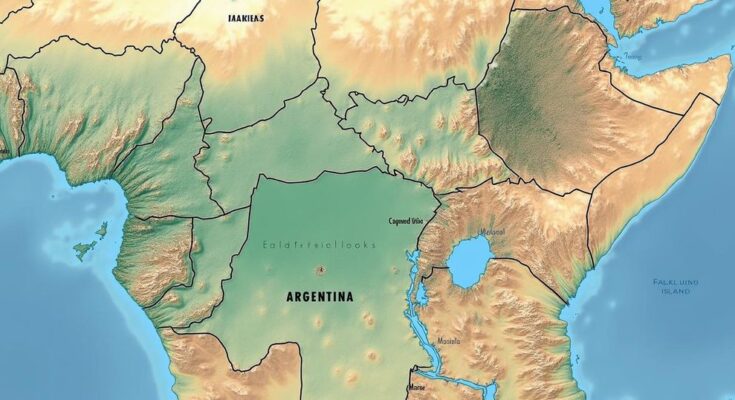Recent political developments have unfolded across Argentina, the UK, and Ghana involving critical issues of university funding, territorial claims, and environmental regulation. In Argentina, President Javier Milei vetoed a law intended to increase university funding, igniting public protests. UK Prime Minister Keir Starmer reaffirmed British sovereignty over the Falkland Islands, while in Ghana, unions against illegal gold mining canceled a strike after government pledges to improve safety and change mining practices.
In recent developments across three distinct regions, significant political decisions and actions are shaping the landscapes of public university funding, territorial governance, and environmental sustainability. In Argentina, President Javier Milei’s veto on a proposed law aimed at enhancing public university funding has sparked widespread protests, highlighting the tension between educational investment and fiscal restraint. Protesters rallied outside Congress, advocating for better salaries for university faculty amid soaring inflation rates exceeding 209%. Meanwhile, in the United Kingdom, Prime Minister Keir Starmer has affirmed that the Falkland Islands and Gibraltar will remain under British administration. This assertion follows contentious discussions regarding territorial integrity, especially after the Labour Party’s recent decision to relinquish claims over the Chagos Islands to Mauritius. Starmer’s commitment is personally significant due to his familial ties to the Falklands conflict, underscoring the profound historical implications of these territories. Finally, in Ghana, unions opposing illegal gold mining have called off a planned strike following negotiations with President Nana Akufo-Addo. The government has committed to enhancing safety measures and reconsidering policies that currently enable mining in environmentally sensitive areas. This dialogue reflects ongoing concerns regarding the ecological consequences and health hazards posed by unregulated mining activities, which have garnered significant public outcry.
The underlying issues in Argentina, the UK, and Ghana are characterized by political decisions that reflect broader societal tensions. In Argentina, the financial challenges faced by public education are compounded by a national inflation crisis, which has drawn significant concern from citizens who rely on public universities for higher education. The public university system serves around 80% of the nation’s students, making its funding a vital issue. In the UK, the Falklands have been a focal point of historical conflict with Argentina, particularly following the 1982 war. The territorial sovereignty debate remains a sensitive point in UK-Argentina relations and is marked by national pride and historical grievances. In Ghana, illegal gold mining represents a critical issue concerning environmental degradation and worker safety. The regulatory framework concerning mining practices is under scrutiny, with unions pushing for stronger government action to prevent devastation to natural resources and protect local communities.
This article encapsulates the interplay of governance, education, and environmental responsibility within Argentina, the UK, and Ghana. President Milei’s veto in Argentina has stoked public discontent regarding educational funding amidst economic turmoil. Concurrently, Prime Minister Starmer’s statements consolidate British claims over the Falklands, emphasizing the islands’ historical significance. In Ghana, the resolution of the union strike against illegal mining highlights governmental efforts to address pressing environmental and humanitarian concerns. Collectively, these events underscore the complexities of political decision-making in response to public demand and historical legacies.
Original Source: nyunews.com




